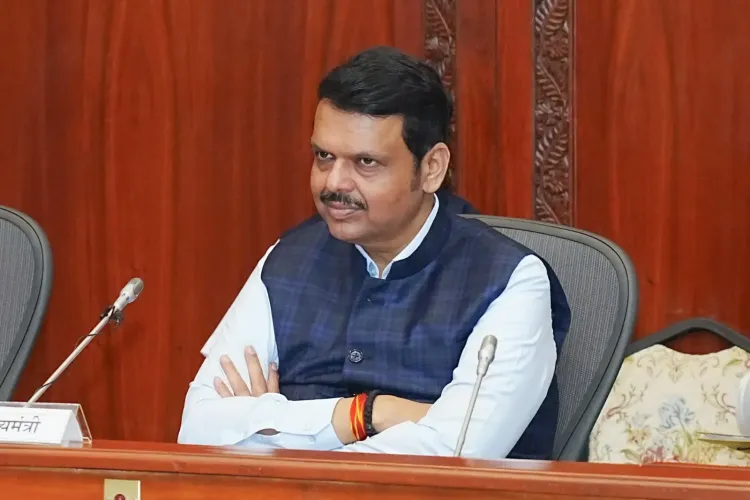Creating an Efficient and Progressive Law Enforcement Framework: Maha CM Fadnavis

Synopsis
Key Takeaways
- Maharashtra is implementing new criminal laws effectively.
- Mobile forensic vans will enhance evidence collection.
- Testimony can now be recorded online from prisons.
- Training for police personnel in new laws is nearly complete.
- Extradition of 26/11 accused Tahawwur Rana is approved.
Mumbai, Feb 14 (NationPress) Maharashtra Chief Minister Devendra Fadnavis announced on Friday that the Bharatiya Nyaya Sanhita (BNS), Bharatiya Nagarik Suraksha Sanhita (BNSS), and Bharatiya Sakshya Sanhita (BSS) will facilitate the establishment of a swift and progressive law enforcement system in the state.
He made these statements following a review conducted by Union Home Minister Amit Shah regarding the execution of the new criminal laws in Maharashtra. Fadnavis mentioned that a meeting was held to evaluate the three new laws in collaboration with the Union Home Minister.
“The meeting focused on assessing the implementation of these laws in Maharashtra, alongside the necessary institutional and infrastructural support, as well as the volume of cases filed under these new regulations. The three laws are the Bharatiya Nyaya Sanhita (BNS), Bharatiya Nagarik Suraksha Sanhita (BNSS), and Bharatiya Sakshya Sanhita (BSS). Recently, the Union Home Minister reviewed these laws in states like Gujarat, Madhya Pradesh, Uttar Pradesh, Uttarakhand, and Haryana. Today, the focus was on Maharashtra’s progress,” he elaborated.
Fadnavis affirmed that Maharashtra has been effectively implementing all three laws.
“We have deployed twenty-seven mobile forensic vans, and within the next six months, a comprehensive network will be operational. In cases where the punishment exceeds seven years, forensic testing will now take place on-site via these mobile vans, aiding in the collection of high-quality evidence. Around ninety percent of Maharashtra’s police force, comprising 2 lakh personnel, has been trained in these laws, with the remaining ten percent set to complete their training by March 31,” he stated.
Additionally, Fadnavis indicated that to prevent accused individuals from needing to appear in court repeatedly, new legal provisions will allow testimony to be recorded from prisons via dedicated cubicles linked to courts through online systems. Each court will have its own designated cubicle, and this project is anticipated to be completed within six to eight months. This initiative will alleviate the burden on police transport, improve security, and reduce courtroom congestion.
“Under the new regulations, repeated adjournments in courts will not be allowed, and government lawyers will need appropriate training. The meeting offered significant guidance, and Maharashtra is set to enhance efforts to implement these three laws more effectively,” said Fadnavis.
On a separate note, regarding the extradition of 26/11 accused Tahawwur Rana, Fadnavis remarked, “The United States has approved the extradition of Tahawwur Rana for the 26/11 attacks, which is highly commendable for Prime Minister Narendra Modi. The online testimony from Rana has previously contributed to establishing Pakistan’s involvement in the 26/11 Mumbai attacks. The time has come for final justice in this case, and since the trial will occur in Mumbai, Rana will be transported here.”
When questioned about the security infrastructure of Mumbai's prisons to accommodate Tahawwur Rana, Fadnavis confidently replied, “If we could house Kasab in a Mumbai jail, then Tahawwur Rana poses no issue.”






